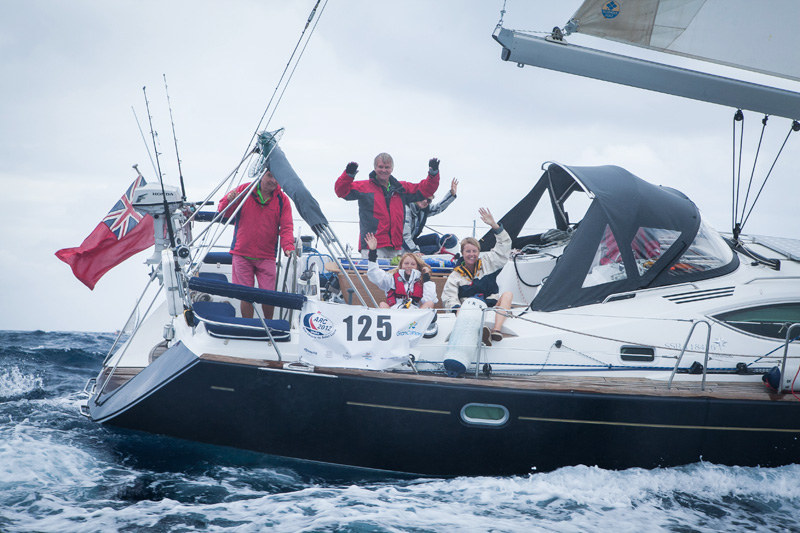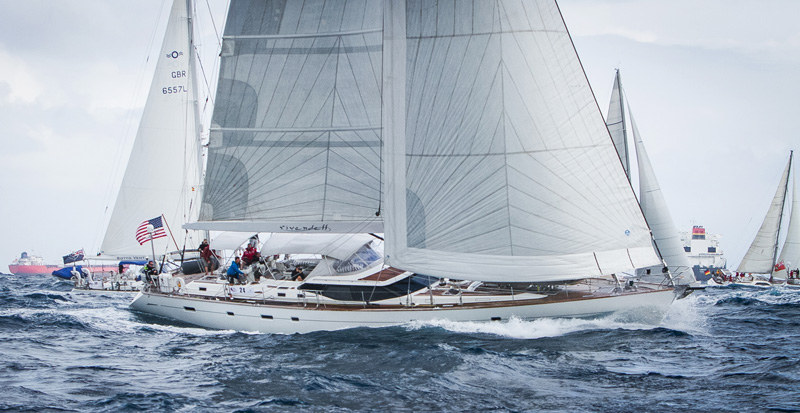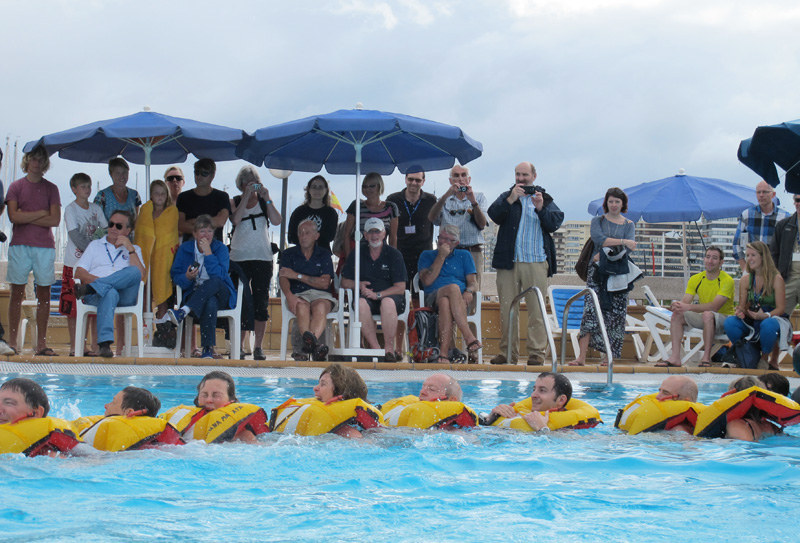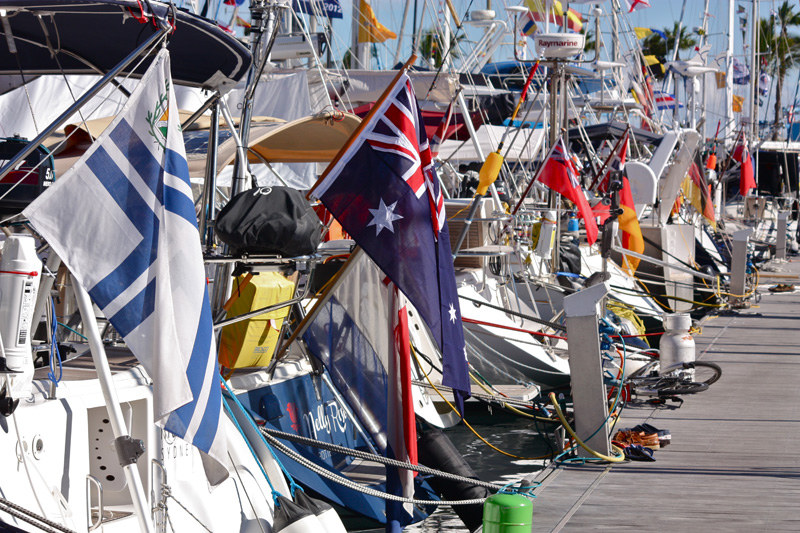
27th ARC Rally Sails From the Canaries
Now celebrating its 27th year, the Atlantic Rally for Cruisers (ARC) got underway from the Canary Islands yesterday with a fleet of 192 boats from at least 29 countries.

Although skies were clear just prior to the first start 10:45 a.m., skies soon turned cloudy, bringing 25-knot winds and rain squalls. Wet, but thankfully not cold, as Gran Canaria, where the start was staged, like at latitude 28N, just 135 miles off the southern tip of Morocco.
Although you may not be lucky enough to be doing the rally this year, you can follow the action via the online fleet viewer, read news updates on the ARC website and/or read the blogs of specific boats. As you’ll see, after only a day at sea a number of boats have substantially pulled away from the bulk of the fleet which is clustered together as it angles southwest, soon due to pass abeam of the Cape Verde Islands. The only reported mishap so far is a Delphia 33 named Julia lost its steering and is being towed to Tenerife.


As in year’s past, the rally will end at Rodney Bay on the Eastern Caribbean island of St. Lucia, a rhumbline distance of roughly 2,700 miles. Looking at the current forecasts, the fastest boats are expected to make landfall in about 12 days — some, perhaps, even threatening the ARC record of 11 days, 5 hours and 32 minutes set in 2006 by the Italian boat Capricorno. The majority of the fleet should take 18-21 days, in time for the awards ceremony on 21 December.

The majority of the ARC fleet views the crossing as a "fun rally," and as such, they are allowed to motor (with elapsed time penalties). There is a serious racing division, however, with is, of course, sail only, which uses IRC ratings. Look for further updates here, and in the pages of Latitude 38.
